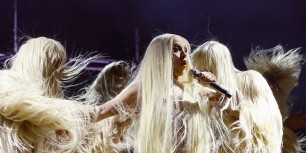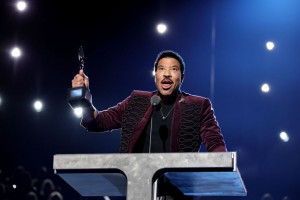The British embassy is just one of many "individuals" that learned a lesson about responsibility and social media this week. The agency posted a photo on Twitter over the weekend featuring a cake with a miniature White House in the center. The cause for celebration? The 200th anniversary of the burning of the building by British forces during the War of 1812.
"Commemorating the 200th anniversary of burning the White House," tweeted @UKinUSA. "Only sparklers this time!"
Although we at Music Times got a chuckle out of the politically incorrect baked good, government members in both the U.S. and UK were rather put off by the display, prompting a quick apology from the embassy in Washington D.C.
The federal government has enough on its hands, attempting to justify U.S. actions in Iraq during the new millennium as well as still facing Hollywood shaming for the failure in Vietnam. They usually don't worry too much about the War of 1812 because many Americans don't even realize that we lost. Hence the time in American history class where your teacher mumbled something about "1812" between the Constitution being written and the Indian Removal Act (ironic that U.S. history is much more comfortable reflecting on genocide than losing a war).
Other countries aren't so willing to let us forget however.
The UK is at the fore of course, with a relatively accurate historical account titled "Burning Down The White House" by The Dicemen. The narrative, played on traditional folk instruments, details the thought process of Admiral George Cockburn as he led his troops to the District of Columbia with the intent to destroy the landmark and home of the President. Sounds like a low blow on their part but The Dicemen include a detail oft forgotten in American history books: The British only opted to destroy the White House after the ransack of Port Dover by American forces. The Dicemen get a little out of hand however, suggesting that American politicians left their wives and children behind in an effort to clear out the city.
But what if the British didn't actually burn the building? Canada hasn't exactly been a military power in recent years so Three Dead Trolls wrote a dramatic ballad about how Canadian forces marched down to Washington D.C. and burned it down. Conveniently left out was the fact that Canada was still run by Britain at the time, so to claim credit for "Canada" is a tad inaccurate. We don't see Stephen Harper burning anything anytime soon.
There are a few good things that came out of the War of 1812 of course, such as "The Star Spangled Banner." That's the song that most Americans believe is titled "The National Anthem" (although it would have been prescient if Francis Scott Key had titled it as such 117 years before it earned the role). That tune certainly celebrates the might of the American...oh wait. Key wrote the ditty while he was captive on a British warship, watching Baltimore's Fort McHenry get shelled mightily. In the "Banner"s defense, the Brits were eventually repelled as the Americans took the overall victory. Not in "Banner"s defense: Key also took the tune for the song from John Stafford Smith's "The Anacreontic Song," a popular British number. No copyright lawsuits were filed but it reflects badly considering the context.
But wait! What about the "Overture of 1812"? Every Fourth of July we watch fireworks explode to the tune on PBS...surely nothing captures our triumph during 1812 such as that, one of the most rousing movements in orchestral history! As has become a theme in this article, Americans are comfortably numb to historical realities. No one stops to consider why Tchaikovsky, a Russian composer, would write such a composition about a battle totally unrelated to his own background. This overture celebrates military victory to be sure, but the 1812 rebuff of Napoleon by Russian forces, not North American affairs (the sample below is, ironically, performed by the Royal Philharmonic).
If this entire article has left you feeling down about American music and the War of 1812, we have one bit of totally non-ironic good news: "The Battle of New Orleans" by Johnny Horton is a humorous and honest telling of the titular battle, where the United States successfully defeated its imperial foe. Horton also had the courtesy not to rub it in British faces. Although his original went to no. 1 in the United States, he edited it to feature the word "rebels" instead of "British" for the UK version, making it seem like a Civil War track instead.













